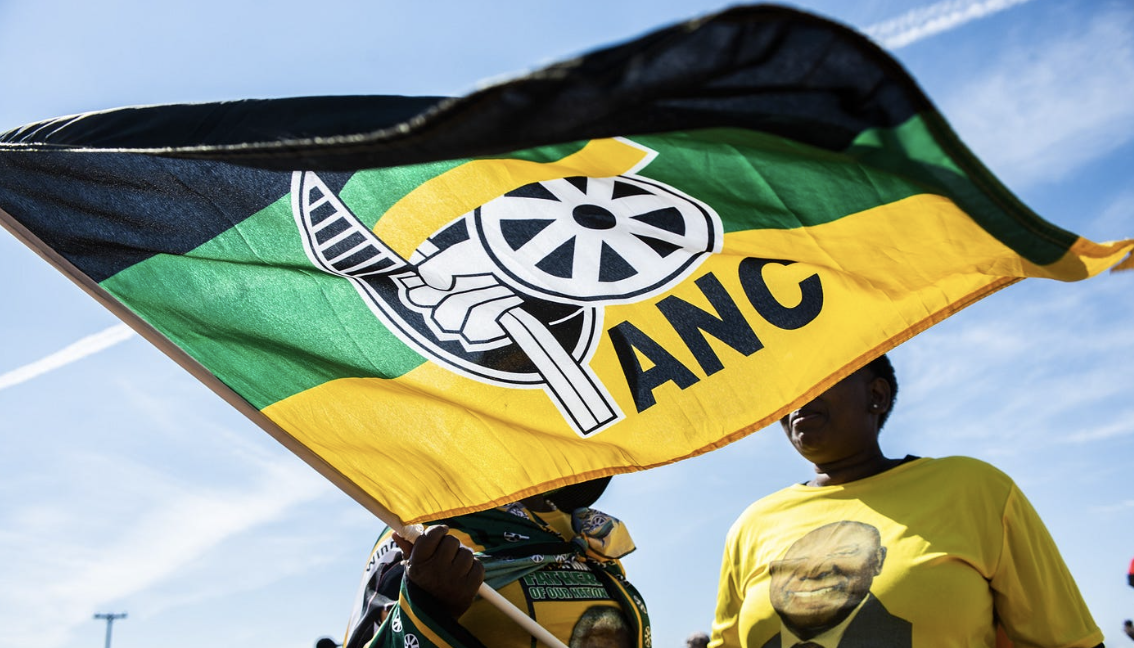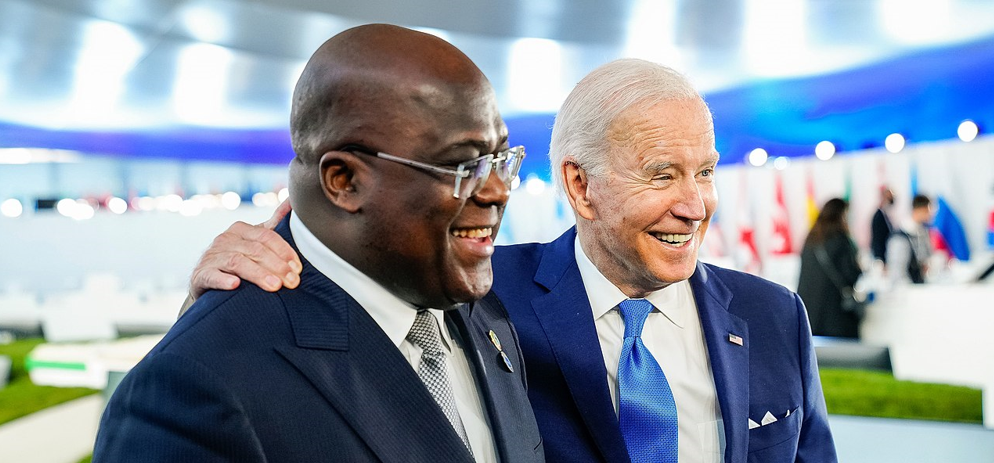News
Authoritarians and Democrats: Where does the ANC fit in?
Brace yourself for a year of naked opportunism as a desperate ANC searches for votes wherever it can find them while facing the possibility of falling below the 50% electoral votes threshold required to form a government.

Director, The Brenthurst Foundation

Research Director, The Brenthurst Foundation

Facing a series of domestic crises around water, electricity, rampant crime and corruption, expect the ANC to pivot to the international arena where the delivery stakes are lower and rhetoric rules.
This follows a year in which the party attempted to reset South Africa’s global positioning. The plan was to pivot firmly away from “the West” in favour of the ruling party’s autocratic friends who turn a blind eye to its failings as they try to build a new world order where autocratic personality cults call the shots and the peasants be damned.
The alignment was natural given the ANC’s obvious lack of excitement at the hard work required to improve the lives of ordinary people. Much more interesting to its leaders was its project to maximise the extraction of rents for its elite, even if this meant the collapse of service delivery.
One promising source of rents has been Russia, which operates in the gas, nuclear and oil space where billions are thrown around as it seeks markets for its strangled economy.
This attempted pivot required South Africa to shelve the last of its values and put its weight behind Russia in its unjustified attempt to colonise Ukraine.
Old “struggle” connections were dusted off as cover. At the same time, the ministers of defence and international relations took every opportunity to publicly fawn over the Russian war machine, conducting joint naval exercises and hosting the Kremlin’s apologist-in-chief, Sergei Lavrov.
Even as the Iranian drones rained down on Ukraine’s civilians, and the democratic world sought to isolate Vladimir Putin, International Relations Minister, Naledi Pandor – eyes shining with love and admiration – told Lavrov in January: “I look forward to the implementation of our commitments and a continued closer working relationship. Our goal is to work unrelentingly towards the upliftment of our respective nations… through the instruments of foreign policy that we have at our disposal.
“Our shared goal, I believe, is to witness a significant and imminent increase in economic, social, cultural and scientific interactions between our countries.”
BRICS summit
The Putin love fest continued as South Africa hosted the BRICS summit in August. After it was clear that the courts would not protect Putin from arrest under an international warrant, the Russian leader participated through a virtual connection.
South Africa, Russia and China, with India and Brazil watching warily on, expanded BRICS to include Iran, the UAE, Saudi Arabia, Ethiopia and Argentina (the latter, now under new leadership, has declined the invitation). Overlooked were large African democracies such as Nigeria and Kenya.
Putin was so pleased with this development that he was moved to state: “I would like to note, as it turned out this was challenging work and President Ramaphosa showed unique diplomatic mastery as we negotiated all the positions including when it comes to BRICS expansion.”
Pandor and her department, now the home of fiercely anti-Western ideologues like her director-general Zane Dangor, believed that “the West” would ignore or tolerate anything South Africa said or did for pragmatic reasons. They were wrong.
Agoa pivot
It soon became apparent that South Africa’s benefits from the Agoa partnership, which allows South Africa easy access to American markets for automobile exports, among other things, were not to be taken for granted. Voices in Washington began to ask why a country that overtly fawned over Russia’s colonial aggression was allowed to be a beneficiary.
With an Agoa summit looming in South Africa in November to review the lucrative trade arrangement, it was clear that the Russia infatuation had to be repackaged to make it look more acceptable to the country’s chief sources of foreign currency – the engine which drives the country’s rents, as any ANC accountant will tell you.
South Africa suddenly remembered that its cadres had been trained on Ukrainian soil and the Russia pivot was blunted, filed and eventually reshaped into a giant olive branch.
South Africa’s indelicate embrace of the Russian war machine, it turned out, had been a giant misunderstanding.
As the Agoa summit got under way, the Department of International Relations and Cooperation (Dirco) surprised the world by announcing that South Africa would host the Ukrainian foreign minister, Dmytro Kuleba, immediately after the summit.
“We are one of the few countries around the regions of the world that can speak to both Ukraine as well as Russia,” Pandor said after the meeting.
She noted “that Ukraine then, as part of the Soviet Union, provided to the freedom struggle” – a significant editing of the narrative that South Africa was closer to Russia because it assisted the exiled ANC.
Middle East crisis
With its Russia policy taking on water, South Africa cast around for a substitute and found it in the Middle East.
On 7 October 2023, Hamas launched a bloody terror assault on Israeli military and civilian targets, killing 1,200 people including youngsters attending a music festival. Footage of the assault was distributed on social media by the assailants and included the bloody, naked corpses of young women being paraded about amid cheering and celebration.
On the same day, Dirco issued a press statement which was notable for its failure to condemn the assault. Instead, it spoke of “the recent devastating escalation in the Israeli-Palestinian conflict”, without referring to the widespread incidents of terror.
Instead of condemnation, it sought to justify the assaults, saying: “The new conflagration has arisen from the continued illegal occupation of Palestine land, continued settlement expansion, desecration of the Al Aqsa Mosque and Christian holy sites, and ongoing oppression of the Palestinian people.”
When Israel retaliated, South Africa withdrew its diplomatic personnel from Israel in protest and put the wheels in motion to close down Israel’s embassy in South Africa. They were beaten to the punch when Israel recalled its ambassador before they could fulfil this objective.

As if to underscore that South Africa would, just as it had done with Russia’s invasion of Ukraine, swallow the narrative of one side – in this case, Hamas – hook, line and sinker, Pandor placed a call with Hamas and appeared in Tehran at a meeting with the Iranian foreign minister.
Irony
Any hope of South Africa presenting itself as a powerful mediator vanished as it took sides, and, apparently oblivious to the irony, it went so far as to end the year with a formal request to the International Court of Justice to investigate Israeli (but not Hamas) actions which it described as “genocide”.
Attempting to explain the condemnation of Israel and the condonation of Russia, Dangor produced these verbal gymnastics:
“Recently I was asked why South Africa is so clear in its support for the people of Palestine and not for the people of Ukraine. While we could have been clearer in many aspects of our response to the war in Ukraine, and this could be the subject of another article, there are a few areas that we were very clear on.
“While we may have stated that we understood Russia’s security concerns with regards to Nato’s expansion, we were very clear that the use of force by Russia on Ukraine was unlawful. We were also very clear that the acquisition of territory through force was unlawful.”
The truth is somewhat different. South Africa abstained from resolutions condemning the unlawful occupation of Ukraine and even from a resolution on humanitarian aid to Russia, and then conducted military exercises with Russia while conducting frequent high-level defence and foreign affairs engagements.
Among those on South Africa’s legal team to prosecute Israel for genocide is Prof John Dugard. Overlooked for the Constitutional Court and then overlooked for the position of head of South Africa’s Human Rights Commission by the ANC after it came to power, it is not without irony that Dugard is now on the payroll to polish up the ANC’s human rights credentials.
Tony Leon wrote the following about the snubbing of Dugard:
“The exclusion of Dugard was, I thought, shocking and ominous. I wrote him a letter of commiseration and thought his reply rueful and revealing: ‘Obviously I was disappointed not to be included, but I cannot say I was surprised. I think/fear that it is easier for the proverbial camel to pass through the eye of a needle than it is for a liberal to enter the Kingdom of the New South Africa’.”
As the ANC’s domestic record cuts into its electoral support, anticipate more focus on international relations. But don’t expect South Africa’s twisted foreign policy to pass through the eye of the human rights needle any time soon.
This article originally appeared on the Daily Maverick
Photo: Getty Images

